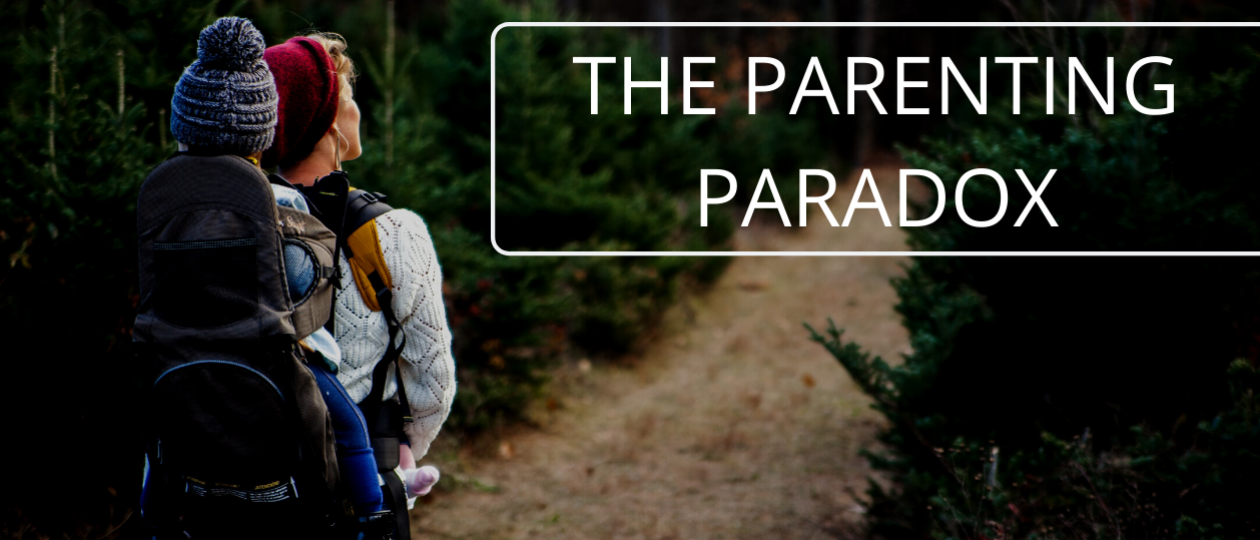The Parenting Paradox
My wife had three miscarriages before our first son was finally born. Since before we were married, we both desperately wanted to have children, so going through this period where we started to believe it would never happen was heartbreaking for both of us. Yet in some ways, it’s a strange thing to look forward to, isn’t it? The worst pain I’ve ever had in my life is kidney stones, which I’ve heard is about the closest a man can get to the pain of childbirth. I certainly never want to go through it again, and they say childbirth is even worse! I literally can’t imagine the pain involved in bringing a child into the world, and yet women do it of their own free will every day.
It doesn’t even stop with the birth. Children are difficult, noisy—not to mention expensive. Raising a child from birth to age 18 is supposed to cost a quarter of a million dollars at minimum! And during that period of time, you’re much less free to do what you like. Yet people still make this choice. I made it twice, and I’ve never regretted it. But there’s another, possibly even bigger paradox related to our children, and how we may have been teaching them wrong for generations.
I’ve said before that the latest research indicates people—especially children—need at least 10 positive interactions to every one negative interaction, and that what most people get these days is the exact opposite! But why is that the case, and what are the consequences when it goes wrong?
The answers to those questions get a little bit involved, but as I see them, it all starts from three simple facts. Fact one: positivity and negativity affect us physically as well as spiritually. This has been the premise of pretty much my whole career, not to mention a lot of the field of psychology. Over the last decade or two, it has been confirmed by more and more medical science as well. Fact two: positivity and negativity both increase at compound interest. The more you think negatively, the more difficult that habit will be to break, and although it might not always seem like it, you can achieve the same thing for positive thoughts and feelings. But it takes a lot more effort, for one major reason…
Fact three: our brains are biased toward negativity. Your unconscious mind’s primary job is to keep you physically alive, and it does this by always staying alert to any possible threats. As far as it’s concerned, it’s far better to overreact than to underreact. Our brains have roughly enough memory capacity to record the entire internet, and trauma memories get bookmarked and stored right on the home page. Just in case.
That’s why things like kindness and compassion are more than just politeness. Negativity is something we can’t help; it’s built into us on a fundamental level. But if that’s all we get then it’ll leave us pretty miserable. Survival comes easy, but really living is hard work.
For Hope and I, maybe the most practical example I can give of this sort of theory was how we handled corporal punishment with our kids. I was spanked growing up. So was pretty much everyone I knew. All our friends spanked their kids, too. Most of them, when I asked, referred to a verse from ancient manuscripts that said, “Spare the rod, spoil the child.” You’ve probably heard it.
Well, I’ve had the opportunity to ask a number of experts about that verse, and every one of them told me the same thing: that the verse is about teaching, not punishment. A lot of our friends thought we were too soft on our children for not spanking, but I’ve never had cause to regret it.
More than that, I want to stress how easy it is for children to create unnecessary trauma memories. One of the best things you can ever possibly do for your children is to help them avoid a consistently negative life experience and replace it with a positive one. In my experience in counseling and therapy, that’s worth a thousand lessons.
Have a blessed, wonderful day!
Alex Loyd



